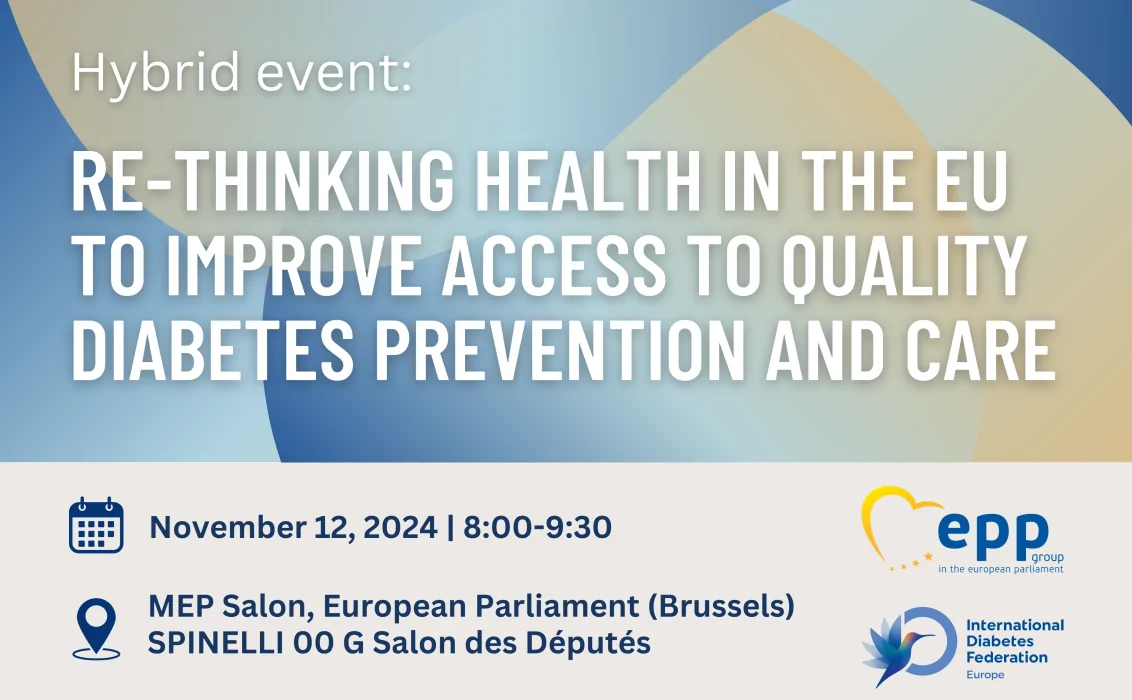Today is International Nurses Day, a global event celebrated on Florence Nightingale´s birthday, the founder of modern nursing practices to mark the contributions nurses make to society. The global campaign this year launched by the International Council of Nurses is centred around the theme “Investing in nursing and respecting nurses’ rights to secure global health”.
The COVID-19 pandemic has exposed weaknesses in healthcare systems across the world caused by important underinvestment which in turn led to high shortages of nurses [i]. While the care that nurses are providing is receiving more recognition since the pandemic, serious investments and reforms are yet to be seen from governments and health systems.
This year’s theme shows the crucial need to protect, support and invest in the nursing profession to build resilient health systems around the world that meet the needs of individuals and communities now and in the future. In hospitals, homes and communities, from non-communicable diseases to infectious diseases, mental health to chronic conditions, nurses play a vital role in healthcare services. Governments and healthcare systems must address the growing nursing shortage, look into providing a positive practice environment and respect nurses’ rights to ensure health equity.
Nurses are also one of the most important healthcare professionals involved in diabetes care. They take on many different roles and responsibilities that range from administering and/or prescribing medication; screening; providing health and psychological advice to help people tackle the huge burden of diabetes; providing educational support and more.
There has been an increase in the number of healthcare systems that are adopting nurse-led patient centred models compared to the more traditional physician models [ii]. A study conducted in the UK has shown that empowering nurses with more independent roles in diabetes care can help improve the outcomes of people living with diabetesii. It has also been demonstrated that nurses-led models were more effective in improving glycaemic control than traditional care [iii].
The same study conducted in the UK showed that nurses face, however, important barriers to care for people living with diabetes in the most optimal way [ii]. The main one is lack of resources. This then creates a vicious cycle of shortage of nurses which in turn leads to lack of time in adequately caring for people. The lack of staff members from systemic underinvestment means that nurses must work more than their normal workload, which ultimately affects their satisfaction, health and the quality of their work. A study conducted in Ireland showed that having inadequate time to screen for complications was an important barrier to giving optimal care. Lastly, a major barrier is the lack of knowledge which once again stems from underinvestment [iv]. Studies have shown that many healthcare systems provide insufficient, outdated or inadequate knowledge about diabetes care to general nurses [v].
On International Nurses Day, IDF Europe calls for the following actions:
- Increase investment in nursing education and infrastructure such as support materials and medical equipment;
- Increase the nurse workforce, ensuring adequate remuneration to achieve a satisfied nurse workforce in order fill the 10 million expected nurse shortage of 2030;
- Provide greater involvement of nurse leaders in healthcare organisations.
[i] International Council of Nurses, 2021, Annual Report: ADVOCATING FOR
PROTECTION, VALUE AND INVESTMENT IN NURSING, https://www.icn.ch/publications.
[ii] https://www.scirp.org/pdf/ojn_2021082013424756.pdf
[iii] Li, D., Elliott, T., Klein, G., Ur, E. and Tang, T.S. (2017) Diabetes Nurse Case Management in a Canadian Tertiary Care Setting: Results of a Randomized Controlled
Trial. Canadian Journal of Diabetes, 41, 297-304.
https://doi.org/10.1016/j.jcjd.2016.10.012
[iv] O’Connor, R.; Mannix, M.; Mullen, J.; Powys, L.; Mannion, M.; Nolan, H.A.; Kearney, E.; Cullen, W.;Griffin, M.; Saunders, J. Structured care of diabetes in general practice: A qualitative study of the barriersand facilitators. Ir. Med. J. 2013,106, 77–80.
[v] https://www.researchgate.net/publication/333784783_The_Role_of_Nurses_and_the_Facilitators_and_Barriers_in_Diabetes_Care_A_Mixed_Methods_Systematic_Literature_Review



